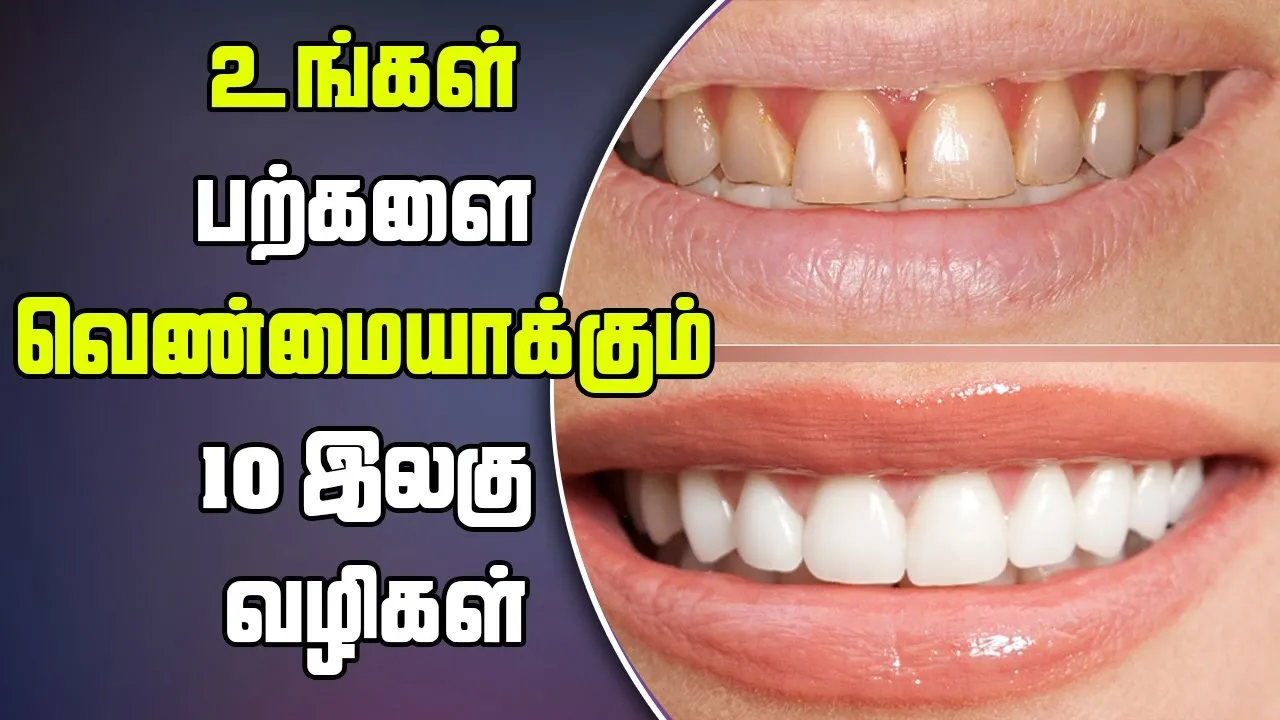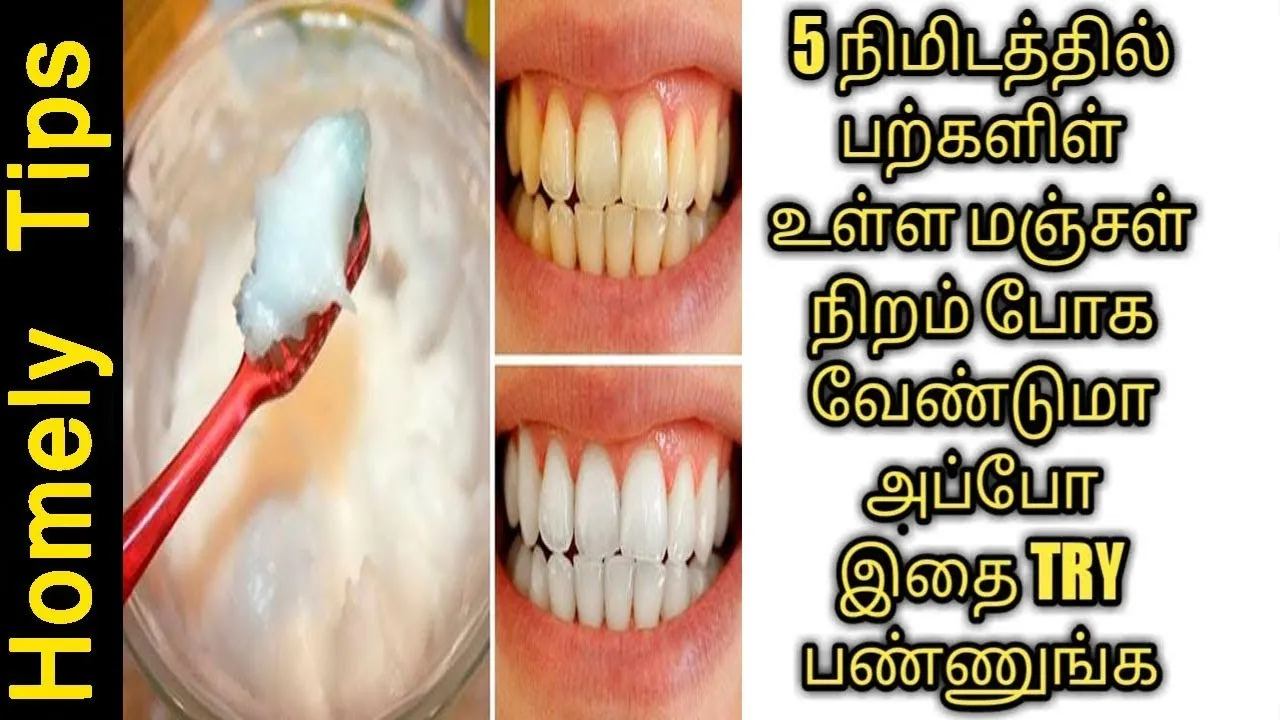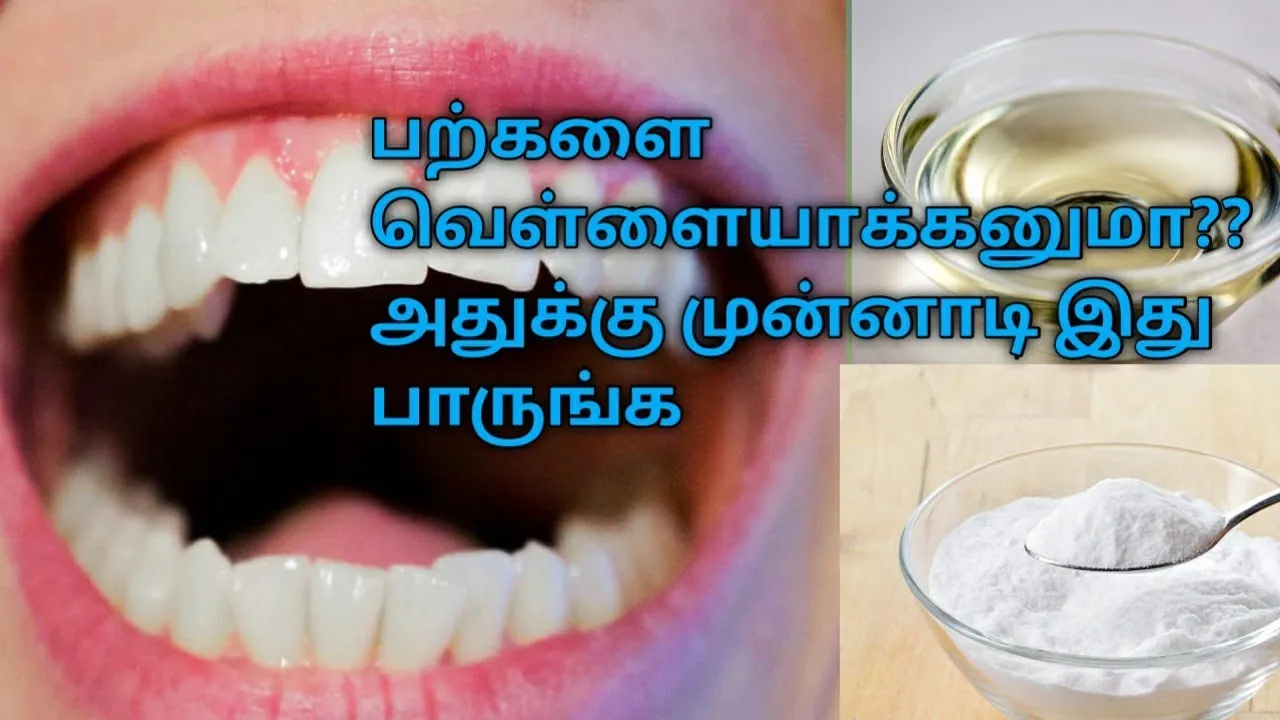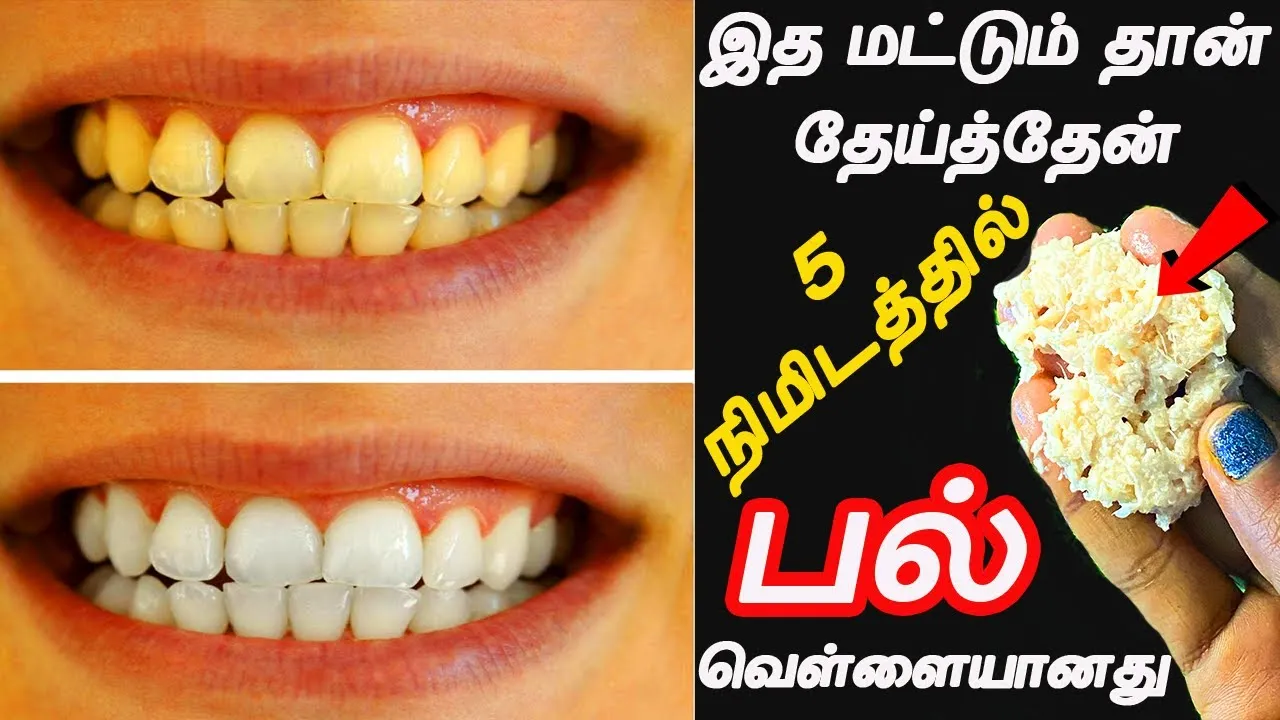Effective Tamil Teeth Whitening Remedies
Discovering a radiant, white smile doesn’t always require expensive dental procedures. In Tamil Nadu, people have traditionally used readily available ingredients to brighten their teeth. These home remedies are not only cost-effective but also often gentle and accessible. From the kitchen to your bathroom, these techniques harness the power of natural ingredients to help you achieve a brighter smile. Remember, consistency and patience are key, and always consult with a dental professional if you have concerns about your oral health. Explore the top 5 Tamil remedies, and integrate them into your routine for a naturally enhanced smile. Remember, maintaining good oral hygiene practices is essential alongside these remedies to achieve the best results. Proper brushing, flossing, and regular dental check-ups are vital for overall dental health.
Use of Coconut Oil for Teeth Whitening
Coconut oil pulling is a popular Ayurvedic practice that has made its way into Tamil households. This method involves swishing coconut oil in your mouth for a specific duration to remove bacteria and toxins, potentially leading to whiter teeth. The oil acts as a cleanser, removing plaque and bacteria that can cause discoloration. It’s a simple yet effective remedy that requires minimal effort and is easily incorporated into your daily routine. This natural method is gentle on the teeth and gums and offers additional oral health benefits beyond just whitening. The lauric acid in coconut oil is believed to kill harmful bacteria, contributing to fresher breath and improved oral hygiene. Regularly practicing this technique can contribute to a brighter smile and healthier mouth overall.
How to Use Coconut Oil

To use coconut oil for teeth whitening, take one to two teaspoons of virgin coconut oil and swish it around your mouth for 15-20 minutes. Ensure the oil reaches all areas of your mouth. After the oil pulling, spit it out into a trash can to avoid clogging your sink, and rinse your mouth with water. Then, brush your teeth as usual. Doing this daily can help reduce plaque buildup and give your teeth a natural shine. You can easily incorporate it into your morning routine. Remember, consistency is crucial; practice oil pulling regularly to see the best results. Starting slowly and gradually increasing the duration can help you adapt comfortably. If you have any fillings or dental work, consult your dentist before starting any new oral health routine.
Benefits of Coconut Oil
Besides whitening, coconut oil pulling offers several benefits. It can improve gum health by reducing inflammation and killing harmful bacteria. It also helps in reducing bad breath and keeping your mouth fresh. Some users have reported a decrease in sensitivity and a cleaner feeling in their mouth. The anti-inflammatory properties of coconut oil can also help in managing gum disease. Consistent use can also lead to a reduction in the incidence of cavities. Coconut oil is a natural, gentle, and effective way to improve oral hygiene and enhance your smile’s appearance. Its ease of use and multitude of benefits make it a popular choice for those seeking a natural approach to dental care. Always remember to maintain your regular dental check-ups.
Baking Soda for Teeth Whitening
Baking soda is another popular Tamil home remedy for teeth whitening, known for its mild abrasive properties. It helps remove surface stains and plaque, contributing to a brighter smile. When used in moderation, baking soda can be an effective and affordable teeth whitening method. Its natural properties help in gently polishing the teeth, reducing the appearance of stains caused by food, drinks, and other factors. However, it’s essential to use it carefully and not overuse it, as excessive use can erode tooth enamel. Combining baking soda with other ingredients like lemon juice or hydrogen peroxide can enhance its effectiveness, but this must be done cautiously to avoid potential side effects. Always follow recommended usage guidelines to protect your teeth and gums while trying this method.
How to use Baking Soda

To use baking soda, mix a small amount (about a teaspoon) with enough water to form a paste. Gently brush your teeth with this paste for about two minutes, then rinse thoroughly. You can use this method once or twice a week to avoid over-abrasion. For added benefits, some people mix baking soda with a few drops of lemon juice or hydrogen peroxide. However, this should be done very cautiously, as lemon juice can be acidic and hydrogen peroxide can irritate the gums if used incorrectly. After brushing with baking soda, always follow up with your regular toothpaste to ensure your teeth are thoroughly cleaned and your enamel is protected. Be mindful of any sensitivity or discomfort while using this method, and consult your dentist if you have concerns.
Precautions while using Baking Soda
While baking soda can effectively whiten teeth, it’s crucial to use it with caution. Overuse can erode tooth enamel, leading to increased sensitivity and potential dental problems. Limit the frequency to once or twice a week. If you experience increased sensitivity, discontinue use immediately and consult a dentist. Avoid brushing too aggressively to prevent enamel damage. Mixing baking soda with other acidic ingredients like lemon juice can increase the risk of enamel erosion, so use these combinations sparingly. Regular dental check-ups are essential to monitor the health of your teeth and gums, especially when using home remedies. Always consult with your dentist to ensure that baking soda is suitable for your specific oral health needs and to receive personalized advice.
Lemon Juice and Teeth Whitening
Lemon juice, with its natural bleaching properties, is another remedy used in Tamil Nadu to whiten teeth. The citric acid in lemon juice helps remove stains and brighten teeth. However, because of its acidity, it should be used very cautiously. Using lemon juice directly on teeth can erode enamel, leading to increased sensitivity and potential damage. Therefore, if you choose to use lemon juice, always use it in moderation and with proper precautions to protect your teeth. Regular monitoring by a dental professional is advised to ensure that your oral health remains in top condition. This remedy is often combined with other ingredients to mitigate some of the negative effects of its acidity, making it a more balanced approach to teeth whitening.
How to use Lemon Juice

If you decide to use lemon juice, dilute it significantly with water. You can apply the diluted mixture to your teeth with a cotton swab, leave it on for a short period (no more than a minute), and then rinse thoroughly with water. Avoid brushing immediately after using lemon juice, as this can further erode the enamel. Some people mix lemon juice with baking soda to create a paste, but again, this should be used very sparingly due to the abrasive and acidic nature of the combination. Always ensure you rinse your mouth thoroughly after use to remove any residual acid and prevent enamel damage. Consider using a straw when drinking lemon juice to minimize direct contact with your teeth.
Precautions while using Lemon Juice
The high acidity of lemon juice can be harmful to your teeth. It can erode tooth enamel, leading to increased sensitivity, cavities, and other dental problems. Therefore, the use of lemon juice for teeth whitening requires significant caution. Always dilute lemon juice with water to reduce its acidity, and never leave it on your teeth for extended periods. Limit the frequency of use to once a week or less, or consider avoiding it altogether if you have sensitive teeth. After using lemon juice, rinse your mouth thoroughly with water and brush your teeth with regular toothpaste to help remineralize the enamel. If you experience any discomfort or increased sensitivity, discontinue use immediately and consult a dentist. Regular dental check-ups are crucial to monitor for any signs of enamel erosion.
Use of Turmeric for Teeth Whitening
Turmeric, a staple in Tamil cooking, is also used as a teeth whitening remedy. This spice contains curcumin, which has anti-inflammatory and antioxidant properties. When used on teeth, turmeric can help remove stains and whiten teeth naturally. Unlike some other remedies, turmeric is gentle and less likely to cause enamel erosion. Its natural properties can also contribute to overall oral health by reducing inflammation and fighting bacteria. The use of turmeric provides a natural, safe, and effective way to brighten your smile, making it a popular choice for those seeking alternative teeth whitening solutions. Turmeric has a mild abrasive quality and is gentle enough for regular use.
How to use Turmeric

To use turmeric, you can make a paste by mixing it with water. Some people add a touch of coconut oil or baking soda to the paste to enhance its effectiveness. Gently brush your teeth with this paste for about 2-3 minutes, and then rinse thoroughly. Turmeric can stain your toothbrush and may temporarily tint your gums, but these effects are usually easily removed with regular brushing. Using turmeric regularly can gradually brighten your smile. Make sure to brush your teeth with your regular toothpaste afterward to fully clean your mouth. Try this remedy a few times a week to see its effects. You can also find turmeric-based toothpaste on the market that simplifies the application process.
Benefits of Turmeric
Turmeric offers several oral health benefits. Besides whitening teeth, it has anti-inflammatory and antibacterial properties that can help improve gum health. It can reduce plaque and gingivitis, contributing to a healthier mouth. The antioxidants in turmeric can also fight free radicals, contributing to overall health. It is a natural, safe, and effective option for those seeking to improve their smile without harsh chemicals. The gentle abrasive quality of turmeric helps to remove surface stains, revealing a brighter smile. Its mildness makes it a good option for people with sensitive teeth. Regular use can lead to a noticeable improvement in both the whiteness and health of your teeth and gums. Always consult with your dentist to incorporate turmeric into your oral hygiene routine.
Importance of Good Oral Hygiene for Whitening
While Tamil home remedies can help whiten teeth, maintaining good oral hygiene is essential for overall dental health and the effectiveness of these remedies. Proper brushing twice a day with fluoride toothpaste is crucial to remove plaque and prevent cavities. Flossing daily helps remove food particles and plaque from areas that brushing cannot reach. Regular dental check-ups and professional cleanings are vital for removing tartar and addressing any dental issues. A balanced diet low in sugary drinks and snacks is also essential to maintain healthy teeth. Good oral hygiene habits create a foundation for a brighter and healthier smile, complementing the effects of any teeth whitening methods. Brushing, flossing, and regular dental visits work together to ensure your teeth remain healthy and radiant. Following these practices makes your teeth whitening efforts even more effective, so prioritize them.
